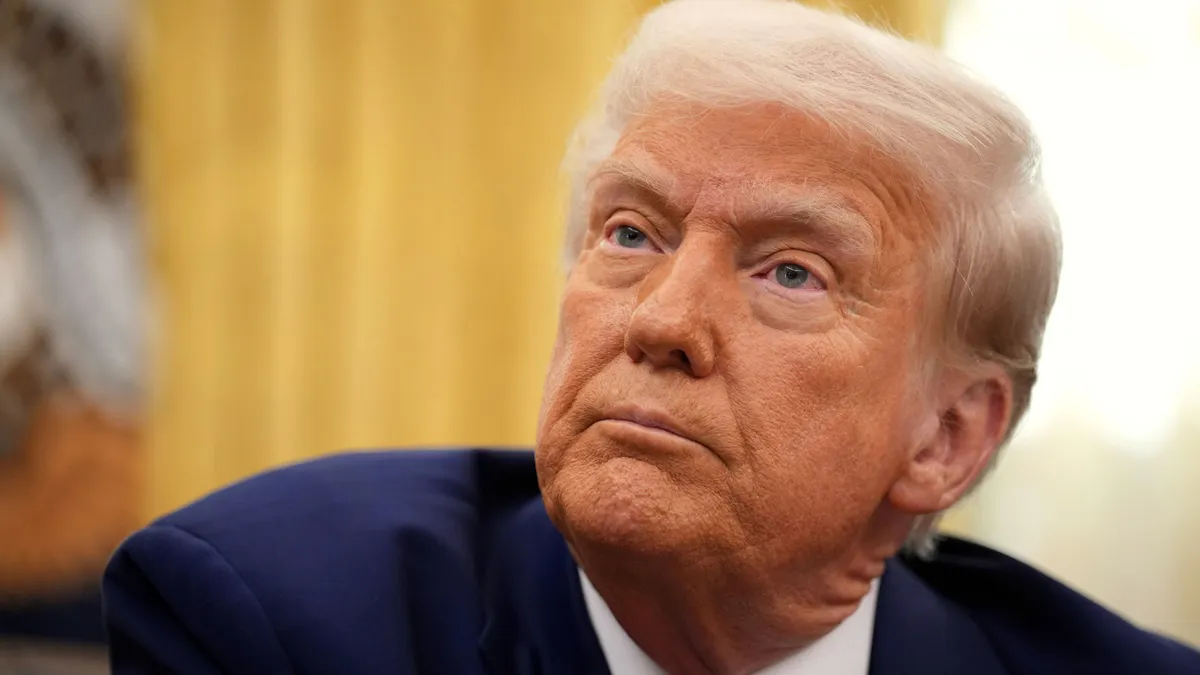Editor’s note: This story is developing and will be updated.
President Donald Trump signed an executive order Thursday enacting a reciprocal tariff policy for all current and potential U.S. trading partners.
The president said the U.S. will match all tariffs implemented against it now or in the future by other countries.
“In other words, they charge us a tax or tariff, and we charge them the exact same tax,” Trump said in an Oval Office news conference.
Trump has ratcheted up his use of tariffs in his first month back in office, echoing actions from his first term.
Last month, the president ordered new import duties on China, Canada and Mexico that were set to go into effect Feb. 4, but the U.S. agreed to delay implementation for Canada and Mexico by 30 days. Meanwhile, the U.S. went forward with Trump’s ordered tariffs on China, with China issuing increased duties on some U.S. imports in response.
Trump has since ordered blanket import duties on steel and aluminum products, effective March 12, and now reciprocal tariffs, a move he hinted at last weekend.
Upon the announcement of the steel and aluminum tariffs earlier this week, the European Union indicated it will retaliate, while Canada and Mexico called the new tariffs unjustified.
Duties on steel and aluminum have sent ripples of concern through multiple industries, particularly the automotive and metal packaging manufacturing sectors, which rely on imported steel and aluminum.
“If the tariff is applied it will increase the cost of building a vehicle,” Stephanie Brinley, associate director of AutoIntelligence at S&P Global Mobility, said in an interview with Automotive Dive. “Steel and aluminum are both heavily used in vehicle manufacturing, so it’s going to have an impact.”
















